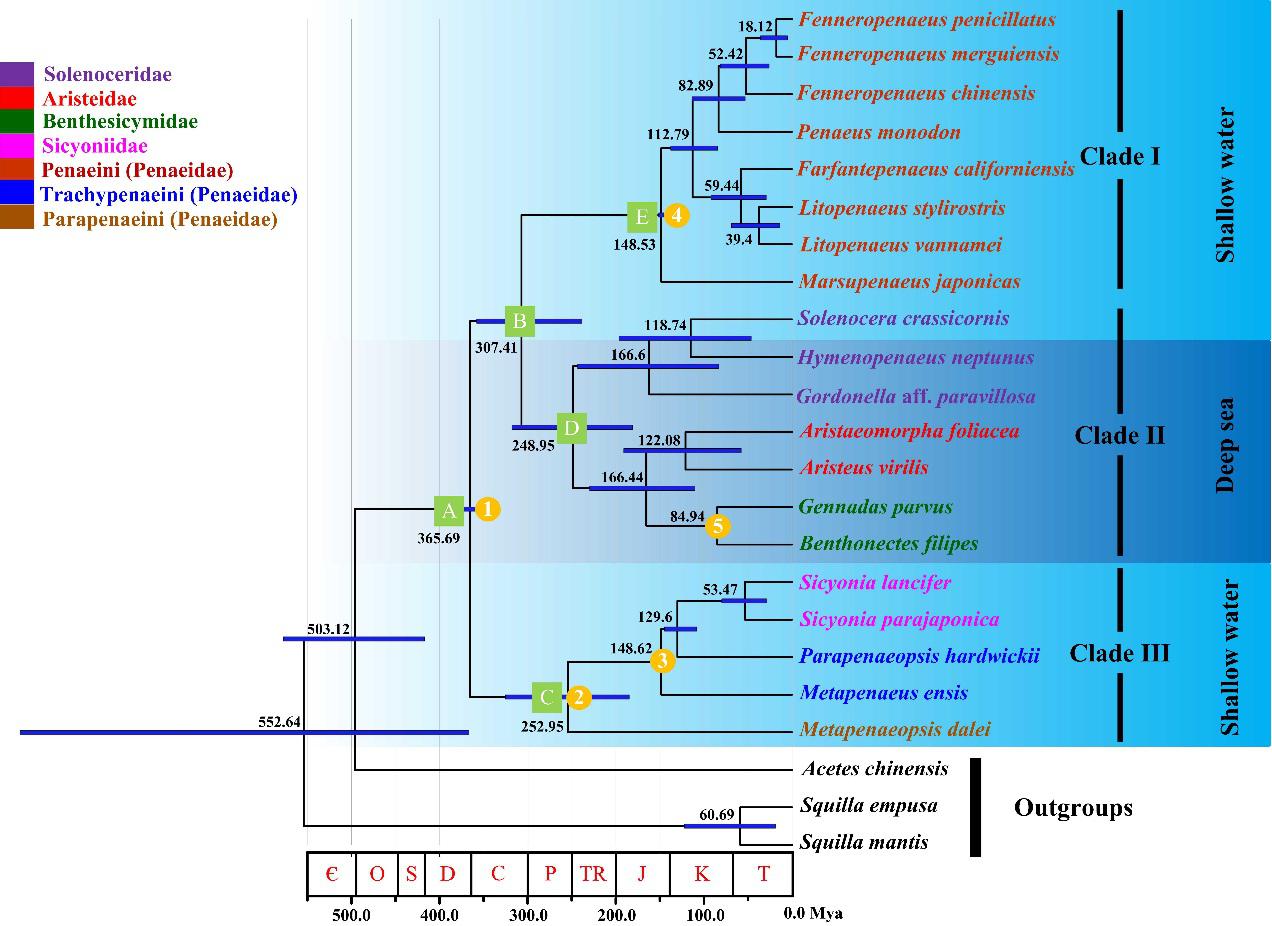Penaeoid shrimps are of commercial interest in fisheries and aquaculture, of which most shrimps account for over one-third of the annual wild crustacean catch. Taxonomically, penaeoid shrimps belong to the superfamily Penaeoidea (Crustacea: Decapoda) in which five families are currently recognized. General members of Penaeidae and Sicyoniidae usually inhabit littoral waters, whereas Aristeidae, Benthesicymidae and Solenoceridae are mostly deep-sea species. Despite their morphological and ecological diversity as well as economic importance, the taxonomy and phylogeny of this group have long been fraught with controversy. Researchers from Institute of Oceanology, Chinese Academy of Sciences conducted the first mitochondrial phylogenomic analysis on all the penaeoid families and tribes towards elucidating the classification and evolutionary history of Penaeoidea. Relevant research findings were published in Zoologica Scripta entitled “Mitochondrial phylogenomics reveals insights into taxonomy and evolution of Penaeoidea (Crustacea: Decapoda)” (https://onlinelibrary.wiley.com/doi/abs/10.1111/zsc.12298).
The resulted phylogenetic tree is generally well resolved with the polyphyly of Penaeidae and its close relationship to Sicyoniidae, as well as the close affinity between Benthesicymidae, Aristeidae and Solenoceridae. Several taxonomic considerations were also emerged from our analyses for further investigation. As the family Penaeidae is recovered to be polyphyletic, the three tribes in Penaeidae are all elevated to familial status. On the other hand, the family Sicyoniidae is retained to accommodate the penaeid tribe Trachypenaeini because they are now synonyms and the former name is more senior. The present molecular data also illustrated a shallow-water origin and an onshore-offshore evolutionary shift in penaeoid shrimps. These results are expected to provide new insights into the classification and evolution of this most commercially important superfamily of shrimps.
The research was funded by the “Key Research Program of Frontier Sciences”, the Senior User Project of RV KEXUE, and the “Strategic Priority Research Program” of Chinese Academy of Sciences. Dr. Jiao Cheng is the first author of the paper, and Prof. Zhongli Sha (shazl@qdio.ac.cn) is the corresponding author.

Phylogenetic tree showing molecular divergence estimates for penaeoid shrimps in million years
|
|

Address: 7 Nanhai Road, Qingdao, Shandong 266071, China
Tel: 86-532-82898902 Fax: 86-532-82898612 E-mail: iocas@qdio.ac.cn


